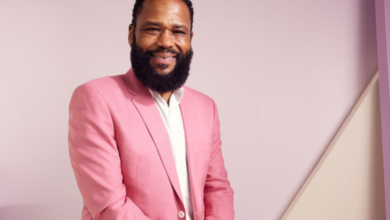How to Handle Conflict If You Hate Confrontation: 5 Tips from Experts
It’s like working out a muscle – the more you do it, the stronger you get. Mindfulness and relaxation techniques can be https://ehumah.com/is-alcoholism-a-disease-the-cycle-of-alcohol.html great for managing the anxiety that often comes with conflict. It’s like having a secret weapon to calm your nerves when things get tense. Now, you might be thinking, “So what if I avoid a few arguments here and there? Erin Leonard, Ph.D. is a practicing psychotherapist and the author of three books about relationships and parenting. Without telling Tim, she goes out to expensive lunches and dinners with her friends, makes several large purchases, and loses a healthy chunk of money at the casino.

Understanding Conflict Avoidance: Why It Happens and How to Address It
- Of course, if you’ve listened well, you might find that your perspective has changed because of what you’ve learnt.
- If you’re a visual person, for example, you can relieve stress by closing your eyes and imagining soothing images.
- This can create a vicious cycle, making it increasingly difficult to break free from avoidant patterns and develop healthier ways of dealing with conflict.
- Ignoring conflict not only hampers individual performance but also negatively affects workplace relationships, creating a ripple effect that ultimately decreases team productivity.
Or you may have sensed a simple solution that can work to resolve the issues raised. Consider what the other person has just told you when you let her know what you’re thinking. Mirroring — moving our body to reflect a mirror image of the other persons — is a natural and unconscious behaviour when we like someone or are getting along. When we dislike someone, or there’s a problem, our unconscious response is to get out of rapport physically — to stop mirroring. Our natural tendency, when faced with a potential conflict, is to disengage from rapport.

Attachment Styles and Conflict Response
Conflict avoidance can really throw a wrench in the gears of any relationship. Whether it’s with a partner, friend, or colleague, dodging difficult conversations often leads to misunderstandings and resentment. Have you ever felt a nagging tension in a relationship, only to realize that important issues were left unaddressed? Conflict becomes damaging when it escalates to a point where it hinders productivity, strains relationships, or causes emotional distress. Destructive conflict can involve personal attacks, unrealistic demands, or the refusal to cooperate.
How to deal with someone who avoids conflict?
They may have a fear of rejection, low self-worth, or a lack of confidence, for example. They may never have learned tools for navigating conflict in relationships, or they may feel disrespected anytime someone urges them to take responsibility for their actions. While these individuals may choose to avoid conflict, anger typically arises when they don’t share their true emotions.
Tips for managing your feelings and building conflict resolution skills
Working in a place where conflict is common can be quite draining. Regardless of the reason, it can help to identify the root of your fears first so you can have more honest conversations with your partner. Or maybe you begin by expressing why you haven’t mentioned your sadness over spending less time together. Research suggests that when confrontation does occur, couples tend to benefit greatly. But the type of confrontation that’s required to help improve a relationship varies depending on the situation. When you are in a romantic relationship, you likely want to feel comfortable speaking openly and honestly with your partner.
That means that if you’ve experience abusive situations in the past, you may have learned to put your emotions last and not assert them. Running away from conflict might provide temporary relief, but it often leads to larger issues down the road. By reframing conflict as an opportunity and equipping yourself with the right tools, you can approach disagreements with confidence and foster healthier, more authentic relationships. Recognising when conflicts require additional expertise or mediation and seeking help to prevent further escalation and promote resolution is vital to maintaining peace. You’ll need more skills than those outlined in this post, and some help from experienced people to resolve major disagreements and to prevent the situation from getting worse. Yet another reason to look out for potential conflict, and nip it in the bud.
Adding More Mindfulness Into Your Life
- In fact, research indicates that 60% of highly agreeable individuals may suppress their emotions to avoid tension.
- While it can feel like a quick fix to keep the peace, avoiding conflict often leads to unresolved issues simmering below the surface.
- It prevents growth, leaves issues unresolved, and can damage relationships in the long run.
- Healthy conflict can lead to innovation, collaboration, and improved relationships, whereas destructive conflict can result in damaged connections and heightened stress.
It’s a subject that has intrigued researchers and therapists for decades, as they seek to understand the intricate workings of the human mind in the face of interpersonal challenges. By delving into this topic, we can gain valuable insights into our own behaviors and those of others, paving the way for healthier, more productive ways of dealing with conflict. If confronting significant issues feels daunting, begin with smaller disagreements. Tackling minor conflicts can bolster your confidence, making it easier to handle larger conversations later.
Consider Alternative Communication Methods
When issues go unaddressed, resentment builds, communication breaks down, and emotional intimacy suffers. Partners may feel unheard or invalidated, leading to a gradual erosion of trust and connection. Over time, even small disagreements can snowball into major problems, threatening the very foundation of the relationship. While it may preserve the marijuana addiction peace in the short term, avoidance can result in resentment, a lack of intimacy, and mental health challenges over the long term. Building healthy conflict resolution skills can involve practicing mindfulness, cultivating self-esteem, and working with a therapist, among other approaches. Over time, it is possible to improve one’s abilities in this area significantly.

Developing emotional intelligence can significantly improve our ability to navigate conflicts. This involves enhancing our capacity to recognize and manage our own emotions, as well as empathize with others. By understanding the emotional dynamics at play in conflicts, we can respond more effectively and compassionately.
How Vitamin D Supports Mood Regulation and Mental Health in Women
For avoids conflict instance, if you’re uneasy about speaking up in meetings, try sharing a point every time you meet, even if it’s something minor. Confidence will grow, and soon you’ll find yourself more comfortable tackling bigger issues. If someone has faced negative repercussions from previous confrontations, they might decide that avoiding conflict altogether is a safer bet.
A therapist can provide guidance on how to communicate more effectively and ensure that both partners feel heard and valued. While avoidance may sometimes feel like the only option, it’s essential to use it as a strategic choice rather than a default reaction. By reassessing priorities, managing your responses, and seeking alternatives when possible, you can navigate inevitable conflicts without compromising your mental health or values. Remember, avoiding conflict temporarily doesn’t mean avoiding your needs or voice forever—revisit the situation when the timing is right and resolution becomes achievable.


